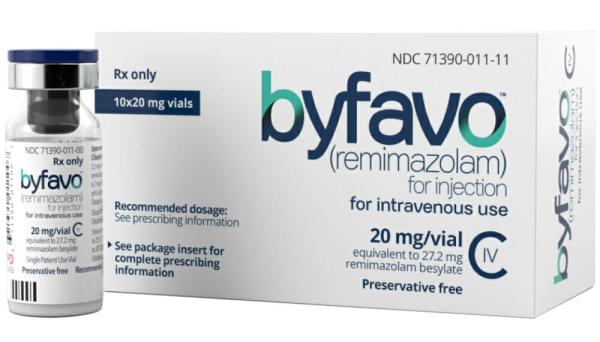Remimazolam Disease Interactions
There are 3 disease interactions with remimazolam.
Benzodiazepines (applies to remimazolam) drug dependence
Major Potential Hazard, High plausibility. Applicable conditions: Drug Abuse/Dependence
Benzodiazepines have the potential to cause dependence and abuse. Tolerance as well as physical and psychological dependence can develop, particularly after prolonged use and/or excessive dosages. However, abrupt cessation following continual use of as few as 6 weeks at therapeutic levels has occasionally precipitated withdrawal symptoms. Addiction- prone individuals, such as those with a history of alcohol or substance abuse, should be under careful surveillance when treated with benzodiazepines. It may be prudent to refrain from dispensing large quantities of medication to these patients. After prolonged use or if dependency is suspected, withdrawal of benzodiazepine therapy should be undertaken gradually using a dosage- tapering schedule. If withdrawal symptoms occur, temporary reinstitution of benzodiazepines may be necessary.
Benzodiazepines (applies to remimazolam) respiratory depression
Major Potential Hazard, High plausibility. Applicable conditions: Pulmonary Impairment, Asphyxia, Respiratory Arrest
Benzodiazepines may cause respiratory depression and apnea, usually when given in high dosages and/or by intravenous administration. However, some patients may be susceptible at commonly used dosages, including the elderly, debilitated or severely ill patients, those receiving other CNS depressants, and those with limited ventilatory reserve, chronic pulmonary insufficiency or other respiratory disorders. Therapy with benzodiazepines should be administered cautiously in these patients. Appropriate monitoring and individualization of dosage are particularly important, and equipment for resuscitation should be immediately available if the parenteral route is used. Benzodiazepines, especially injectable formulations, should generally be avoided in patients with sleep apnea, severe respiratory insufficiency, or hypoxia.
Benzodiazepines (iv/im) (applies to remimazolam) prolonged hypotension
Major Potential Hazard, High plausibility. Applicable conditions: Shock, Altered Consciousness
Benzodiazepines should not be administered by injection to patients in shock or coma. The hypnotic and hypotensive effects of these agents may be prolonged and intensified in such patients.
Switch to professional interaction data
Remimazolam drug interactions
There are 397 drug interactions with remimazolam.
Remimazolam alcohol/food interactions
There is 1 alcohol/food interaction with remimazolam.
More about remimazolam
- remimazolam consumer information
- Check interactions
- Compare alternatives
- Side effects
- Dosage information
- During pregnancy
- Drug class: benzodiazepines
- Breastfeeding
- En español
Related treatment guides
Drug Interaction Classification
| Highly clinically significant. Avoid combinations; the risk of the interaction outweighs the benefit. | |
| Moderately clinically significant. Usually avoid combinations; use it only under special circumstances. | |
| Minimally clinically significant. Minimize risk; assess risk and consider an alternative drug, take steps to circumvent the interaction risk and/or institute a monitoring plan. | |
| No interaction information available. |
See also:
Further information
Always consult your healthcare provider to ensure the information displayed on this page applies to your personal circumstances.


